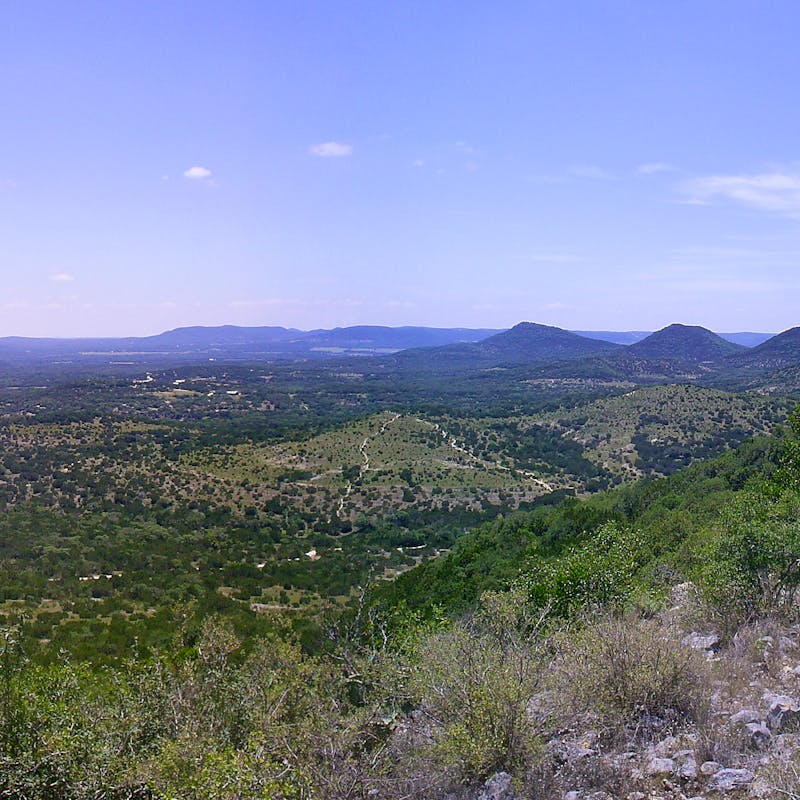The beautiful, brightly colored golden-cheeked warbler has returned to Texas from Central America to breed and start a new generation. Unfortunately, these songbirds may not have a home to return to if their woodland habitat continues to disappear at the current rate.
Ahead of the of the U.S. Fish and Wildlife Service’s (FWS) Species Status Assessment for the golden-cheeked warbler, Defenders of Wildlife has determined its habitat is and has been in rapid decline for decades.
“In the past three decades, 45% of the warbler’s highest quality breeding habitat and 13% of overall habitat has been lost or severely degraded,” said Lindsay Rosa, senior conservation scientist, Defenders of Wildlife.
Even though the birds fly south for the winter, golden-cheeked warblers breed only in the Ashe juniper and oak woodland trees of the Edwards Plateau in about 27,000 square miles of Central Texas. Much of that habitat was destroyed over the past century due to agricultural conversion and rapid urbanization. This resulted in the warbler’s listing under the Endangered Species Act (ESA) in 1990. Human encroachment has also led to an increase in predators such as cats, blue jays, cowbirds and increased noise that have led to the decline of the warbler’s habitat.
“The golden-cheeked warbler is being pushed to the brink of extinction,” said Paul Sanchez-Navarro, senior representative, Texas, Defenders of Wildlife. “Defenders’ new analysis sends a clear signal that it is past time to act. Defenders will continue to vigorously defend the warbler and the habitat to help reverse its fortunes.”
There is pressure to remove the species from the endangered list, with claims that the warbler’s population has recovered. However, as more and more of the bird’s unique habitat is lost, fewer chicks will hatch each year, which will push the species closer to extinction. Several population models show that the warbler is still very much at risk and still meets the requirements to be listed as endangered under the ESA.
On March 26, FWS initiated a Species Status Assessment for the golden-cheeked warbler, which will likely reinforce the data of population models and show that the golden-cheeked warbler is still endangered. In 2014, the Five-Year Review found that the bird was still threatened and deserved continued protection under the law. In the seven years since the last review, urbanization in Texas and destruction of the warbler’s habitat has continued. The bird is likely more imperiled now than ever. The Austin – San Antonio metropolitan area has become one of the fastest-growing regions in the country as more businesses and people relocate to central Texas. The resulting development is encroaching on the remaining habitat of this iconic endangered species and poses a threat to its survival. This growth shows no sign of slowing either, which means there will be more pressure to build on prime habitat.
This research is significant, and especially as FWS evaluates the next steps for the warbler. The past and expected continued threat of habitat destruction mean the golden-cheeked warbler remains in danger of extinction. The ESA provides critical private land habitat conservation tools, including Habitat Conservation Plans, which FWS can use to ensure proper planning and collaboration amongst stakeholders so that Texans and these beautiful songbirds can coexist.
For over 75 years, Defenders of Wildlife has remained dedicated to protecting all native animals and plants in their natural communities. With a nationwide network of nearly 2.1 million members and supporters, Defenders of Wildlife is a leading advocate for innovative solutions to safeguard our wildlife for generations to come. To learn more, please visit https://defenders.org/newsroom or follow us on X @Defenders.
Media Contact
News

Defenders Receives Advocacy Organization of the Year Award



